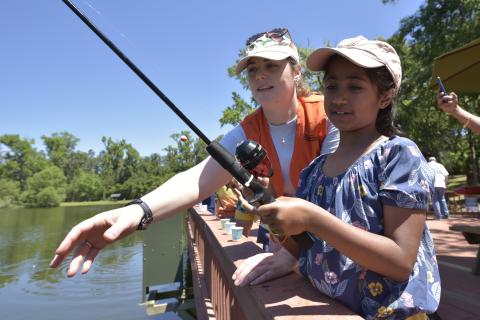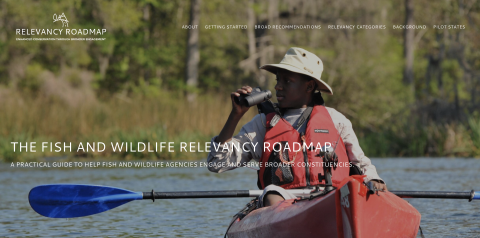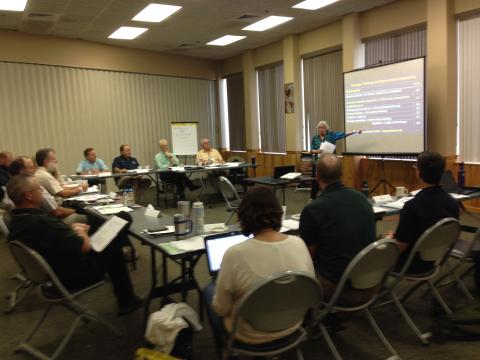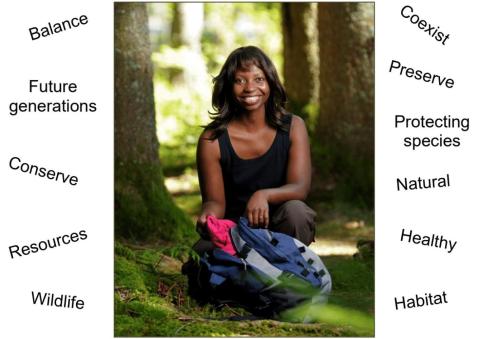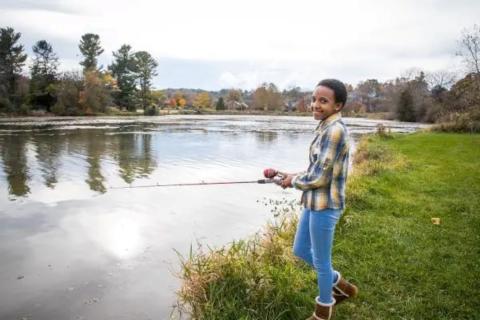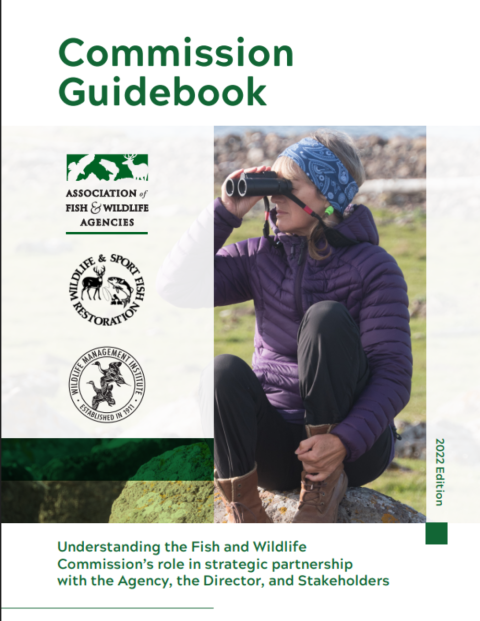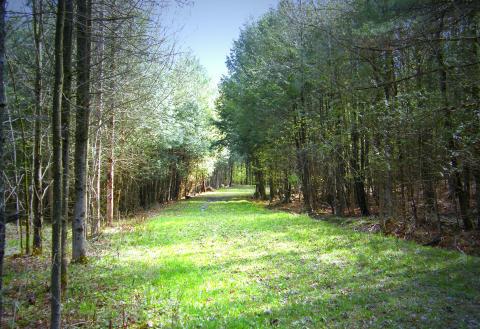Conservation may mean different things to different people and institutions, and in many cases those meanings compete with and confound the ability to clearly stipulate and rally support for wildlife, land conservation, and environmental quality. Some groups may use the term to describe efforts that would be more appropriately deemed "preservation," while other groups construe the meaning of conservation to a narrow agenda (e.g. game species production) without regard for or interest in broader issues of sustainability.
In the broadest sense, "conservation" entails all of the actions by governmental agencies, non-governmental organizations, and individuals to maintain the services and benefits of our environment. Resource management agencies have unique roles in conservation by virtue of their obligation under the Public Trust Doctrine, their professional expertise, and a general adherence to land ethics. The efficacy in which those roles can be fulfilled is contingent upon cultivating shared values and support among a critical mass of the public. Understanding and engaging the public is necessary to achieve successful conservation efforts that are relevant to a broad public.
Why is it necessary for conservation to be relevant? One answer is the support for agency authority, budget and programs, but the more basic reason is perpetuity of public trust resources. The Public Trust Doctrine concepts are all about relevance, and relevance, like society, is always changing. Changing societal demographic trends - older, more urban, more ethnically diverse - have been well documented, but the natural resource community still struggles to find ways to adapt. Important cultural changes driven by the rapid and pervasive adoption of digital technology, especially by the millennial generation also create powerful implications in the quest for conservation relevance.
Endorsed by AFWA directors in 2019, the Relevancy Roadmap is a practical guide that offers more than 100 recommendations state and provincial fish and wildlife agencies can use to engage and serve broader constituencies and to overcome barriers to broader relevance, public engagement, and support. Former WMI President Steve Williams and Current WMI President Tony Wasley (then with Nevada Department of Wildlife) co-chaired the roadmap group. WMI has continued to work with partners to implement the Roadmap to engage broader constituencies to enhance conservation outcomes.
The Fish and Wildlife Relevancy Roadmap
In the past decade, state fish and wildlife agencies (SFWAs) have been challenged to transform the way they strategically manage natural resources into the 21st century. Given the growing threats facing conservation of fish and wildlife resources, there is little doubt that those agencies can play an essential, future leadership role in integrating the values, resources and perspectives of entities working collaboratively to address traditional and emerging conservation goals.
WMI's Ann Forstchen annotated a bibliography of State Fish and Wildlife Agency Transformation in support of the Blue Ribbon Panel Relevancy Working Group, organized by date of publication.
Links to selected articles coming soon
In the United States, state and federal governments have the legal trust authority and mandate to conserve wild, living resources for the benefit of people. This obligation, known as the "public trust doctrine," is the foundation of the nation's approach to wildlife conservation and the complex institution (e.g., fish and wildlife agencies, non-governmental wildlife conservation organizations, etc.) that has been created to support natural resource conservation. The public trust doctrine stands as both the reason and requirement placed on government to conserve all wildlife for all people - including those of future generations.
In February 2025, WMI and several key Florida Fish and Wildlife Conservation Commission (FWC) staff conducted a 3-day training session called “Thinking Like a Manager”. This concept was originally developed for the FWC in 2006 by Dr. Daniel Decker and his colleagues at Cornell University. It was later developed into a training session to help staff fully understand the context of conservation-related issues.
The training develops “coaches” that can lead groups of agency staff to explore the broad ecological and socio-political system in which the issue resides. The process is called developing a Manager’s Model and FWC has conducted dozens of these Models focusing on topics such as black bear, coastal wildlife, snail kites, Florida panthers, pythons, freshwater turtles, lionfish, sharks, and coyotes. FWC has even used the Manager’s Model to explore conservation easements, the future of wildlife management areas, nongame species management, and the management of FWC facilities.
Wildlife conservation is losing ground in the U.S. for many reasons. The net effect is declines in species and habitat. To address this trend, the wildlife conservation institution (i.e., all customs, practices, organizations and agencies, policies, and laws with respect to wildlife) must adapt to contemporary social– ecological conditions. Adaptation could be supported by clear guidelines reflecting contemporary expectations for wildlife governance. We combine elements of public trust thinking and good governance to produce a broad set of wildlife governance principles. These principles represent guidance for ecologically and socially responsible wildlife conservation. They address persistent, systemic problems and, if adopted, will bring the institution into line with modern expectations for governance of public natural resources. Implementation will require changes in values, objectives, and processes of the wildlife conservation institution. These changes may be difficult, but promise improved wildlife conservation outcomes and increased support for conservation. We introduce challenges and opportunities associated with the principles, and encourage dialogue about them among scientists, practitioners, and other leaders in U.S. wildlife conservation. The principles alone will not change the course of conservation for the better, but may be necessary for such change to occur.
Are you too busy? Building off more than 15 years of observations in conservation related workshops and trainings on different topics in multiple states we’ve highlighted some causes and effects about being “too busy” to get critical work accomplished in a new article in Frontiers of Conservation Science. The belief that reflecting, planning, and evaluating wildlife management work is a luxury should be sobering, if not intolerable to a profession entrusted with public trust resource administration. The negative effects of being too busy as a fish and wildlife professional were brought into focus in a series of workshops to identify habits and practices of consistently high-performing wildlife professionals. The work of conservation professionals is accomplished through management within a framework of decision making that requires them to be reflective and analytical about what to believe (reasoning) and what to do (judgment) in a particular management situation and then evaluating and learning from their experiences. Such purposeful reflection and critical analysis are essential to successful decision making. This entire process requires taking time to think.
Read the article, "Taking Time to Think", from Frontiers in Conservation
The Wildlife Management Institute (WMI) and Responsive Management completed a new Multistate Conservation Grant study in 2021 on the conservation words and phrases that resonate the most with the American public. The study is predicated on the fact that words matter—that the individual terms and phrases used by conservation professionals to describe their work can mean the difference between concern and apathy among everyday U.S. residents.
Glean report highlights from this Outdoor News Bulletin article
The full report includes extensive discussions of other findings as well as detailed communications recommendations based on the research.
This document addresses a barrier identified in the Relevancy Roadmap (Relevancy Roadmap) - Agency Capacity Barrier 2 – Agency lacks capacity to identify, understand, engage with, and serve the needs of broader constituencies, Tactic: Create a strategic, comprehensive plan to engage and serve all current and future constituents.
Funded through a 2021 AFWA Multi-state Conservation Grant, this report describes the 20 month journey to implement several recommendations presented in the Fish and Wildlife Relevancy Roadmap, undertaken by the Virginia Department of Wildlife Resources (VA DWR) with Outdoor Afro, the Upper Mattaponi Indian Tribe, and the Rappahannock Tribe. According to the report’s executive summary, VA DWR and its partners encountered two broad sets of challenges during their collective journey: “1) creating the internal agency conditions necessary for success in advancing relevancy, and 2) building and maintaining external relationships to increase VA DWR’s relevancy.” The report summarizes key aspects of these challenges, lessons learned as team members worked to address them, recommendations for how they might be better resolved in the future, and offers advice for others beginning their relevancy journey.
Read article from the Outdoor News Bulletin about this process.
This Guidebook and related products are intended to be a tool for state agency personnel tasked with on-boarding or orientating newly appointed Commission or Board members. It is also a resource for new and seasoned Commission members for more detailed information about their roles and responsibilities on a state agency Commission. It is organized around the critical functions of the Commission and its relationships with the agency, the director, and stakeholders. This Guidebook has been written using information from previous editions, the experiences and expertise of the authors, a literature review of best management practices in natural resource governance, personal interviews with select agency directors and Commissioners, and a survey of all the state’s directors and Commissioners.
This tool was developed by Ann Forstchen, formerly with the Florida Fish and Wildlife Conservation Commission and now with the Wildlife Management Institute. The intent is to assess the perspectives of a small internal agency team (not the whole agency) that is focused on engaging with broader constituencies to improve conservation benefits and outcomes. The purpose of the assessment is to generate discussion and exploration in the internal team of which constituents they want to learn more about and engage and serve. Contact: Aforstchen@wildlifemgt.org
The purpose of this project was to begin establishing a national coalition of staff in state fish and wildlife agencies and other Association of Fish and Wildlife Agencies member organizations to serve as expert practitioners (coaches) to support implementation of the Fish and Wildlife Relevancy Roadmap. The project was intended to prepare participants to continue learning from and with each other and support other agency staff engaged in relevancy-related work. Here, “relevancy” means improving conservation outcomes by identifying, engaging, and serving broader constituencies.
Participants were provided training and technical assistance from professionals who have been deeply embedded in conservation relevancy work. They were also provided with customizable materials (e.g., assessment tools, worksheets, guidance documents) for use by their own and other conservation organizations, as well as in-depth reference materials (e.g., journal articles, websites, books, videos). The trainings and materials included guidance on (1) articulating what relevancy means in a given organizational context, (2) assessing why—and to whom—a conservation agency or organization wants to increase relevancy, and (3) developing and implementing plans to engage and serve broader constituencies to enhance conservation.
In 2024, the Boone and Crockett Club launched an online education platform to teach hunter ethics. Thanks to a grant from the National Rifle Association’s Hunters’ Leadership Forum (NRA-HLF), a team of Boone and Crockett Club Fair Chase subject matter experts and educators formulated the world-class online learning experience to help communicate the importance of Fair Chase ethics when hunters head to the field. The Fair Chase and Hunter Ethics curriculum takes a deep dive into the roots of conservation, the value of hunting within the North American Model of Wildlife Conservation, and the importance of Fair Chase ethics.
